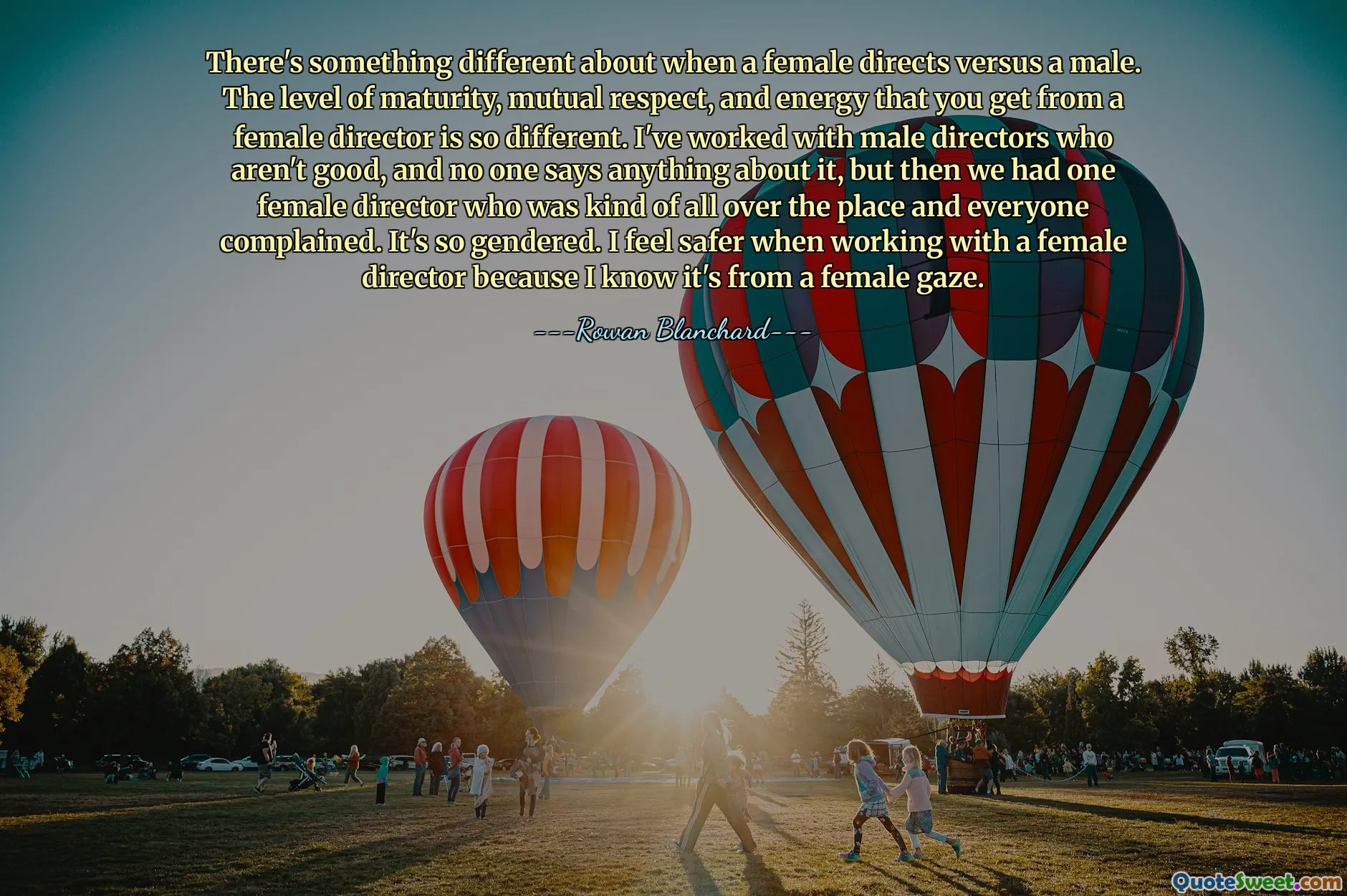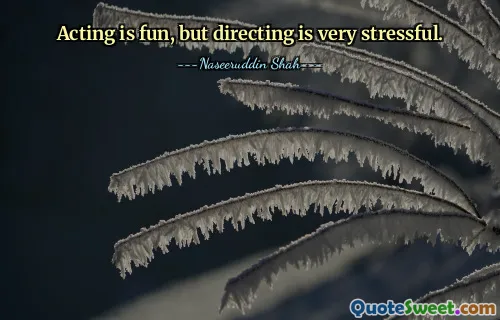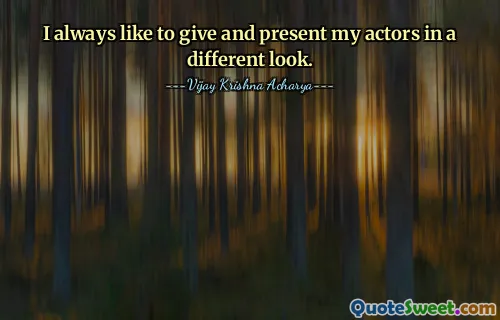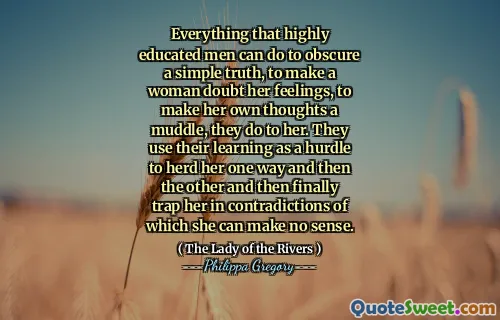
There's something different about when a female directs versus a male. The level of maturity, mutual respect, and energy that you get from a female director is so different. I've worked with male directors who aren't good, and no one says anything about it, but then we had one female director who was kind of all over the place and everyone complained. It's so gendered. I feel safer when working with a female director because I know it's from a female gaze.
This quote provides a nuanced perspective on gender dynamics within the professional world of directing, highlighting an evident discrepancy in how male and female directors are perceived and treated. It emphasizes the existence of a double standard: male directors who may not perform well often face little criticism, whereas female directors, even with comparable performance, encounter disproportionate scrutiny. This discrepancy elucidates the deeply ingrained gender biases still present in many industries, revealing how societal norms influence the recognition and evaluation of skill and professionalism based on gender.
Moreover, the quote touches on the concept of the "female gaze," a notion that signifies the representation and approach unique to women in creative leadership roles. The speaker expresses a feeling of safety and comfort when working under a female director, suggesting that representation matters not only in artistic vision but also in fostering supportive and respectful work environments. This sentiment also points toward the broader implications of inclusivity in leadership positions — diversity is crucial not just for artistic variety but for cultivating healthier workplace dynamics.
Reflecting on this, it becomes clear that addressing gender biases requires more than superficial equality. It calls for an honest confrontation of stereotypes and a commitment to valuing individuals' contributions based on merit rather than predefined expectations. Encouraging inclusivity and recognizing different leadership styles without prejudice helps create a more equitable and creative industry. Recognizing the validity of the "female gaze" and promoting gender parity in authoritative roles can ultimately lead to richer narratives and a safer, more respectful working culture.
---Rowan Blanchard---










